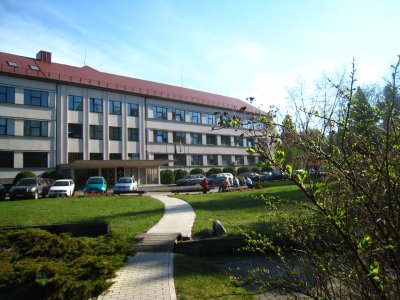LAMMC Institute of Forestry is a research institution, established for the national forestry long-term research and international cooperation in the year 1950. Since January 1, 2010, Lithuanian Forest Research Institute has become a branch of the Lithuanian Research Centre for Agriculture and Forestry, thus, was renamed into the Institute of Forestry.
The missions of Institute – to carry out the basic and applied forest research for obtaining new knowledge with the purpose of social, ecological and economic country development, to expand the dissemination of scientific and technical information about forest and environment, to train the forest and environmental research scientists.
Institute of Forestry is a member of the International Union of Forest Research Organisations (IURFO) and cooperates with many scientific and educational institutions of other countries through implementation of joint international projects. Since 2017, the Institute is a member of European Forest Institute (EFI).
Institute has 6 research units: Ecology Department, Silviculture Department, Forest Protection and Game Management Department, Forest Genetics and Tree Breeding Department, Forest Resources, Economics and Policy Department, Laboratory of Forest Plant Biotechnology. The staff of these research units includes 37 researchers (including 32 scientists) and 14 PhD students. All research work carried out in the Institute corresponds to the main research directions of Lithuanian Research Centre for Agriculture and Forestry.
The basic research directions of the Institute are as follows: (1) Physical, chemical, biological soil properties and plant nutrition; (2) Forest plant breeding, genetics and biotechnology; breeding for new varieties and research on forest plant genetic resources in Lithuania; (3) Forest plants biology and modeling of silviculture systems for wood quality and stand productivity; (4) Microbiology and plant pathology, toxicology of forest products and materials; (5) Optimization and modeling of forest plant processing and product storage; (6) Sustainability of forest ecosystems and climate change; (7) Forestry systems; the social and economic problems of forestry, forest policy.
The researches of Institute are participating in three long-term research and development programmes: “Sustainable forestry and global changes”, “Harmful organisms in agro- and forest ecosystems” and “Productivity and sustainability of agricultural and forest soils”
In recent years, the scientists of the Institute have participated in the national and international projects funded by the Research Council of Lithuania (high-level R&D (SMART) project, Project of high-level researchers’ group, Projects of researchers’ teams of Projects of the national research programme “Sustainability of Agro-, Forest and Water ecosystems”, projects for scientists groups, Implementation of Postdoctoral internships in Lithuania), INTERREG Programme, the 7th Framework Programme, European Commission (FP5, FP6), “EUFORGEN“, SNS foundation, COST actions, etc.
Every year, the Institute carries out about twenty different projects of applied research for economic entities of Lithuania (state and private forest enterprises), Ministry of Environment of the Republic of Lithuania, Ministry of Agriculture of the Republic of Lithuania and other state authority’s institutions.
The researchers and PhD students were actively involved in the in-service training in short-term and long-term internships in the science and studies institutions in the USA, Sweden, Great Britain, Germany, Poland and etc., where they gained new knowledge and experience, familiarized themselves with research of international level, and established collaborative contacts.
The Institute of Forestry in cooperation with Aleksandras Stulginskis University publishes the national peer-reviewed scientific journal “Miškininkystė” (Forestry), and in cooperation with Latvian and Estonian forest research institutions and universities publishes the peer-reviewed international journal “Baltic Forestry”. Articles printed in this journal are indexed in the “Clarivate Analytics Web of Science” database.
